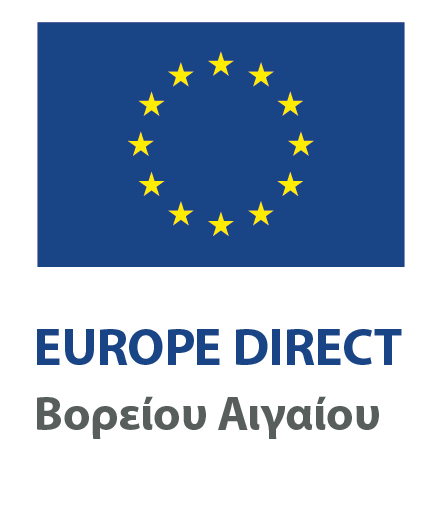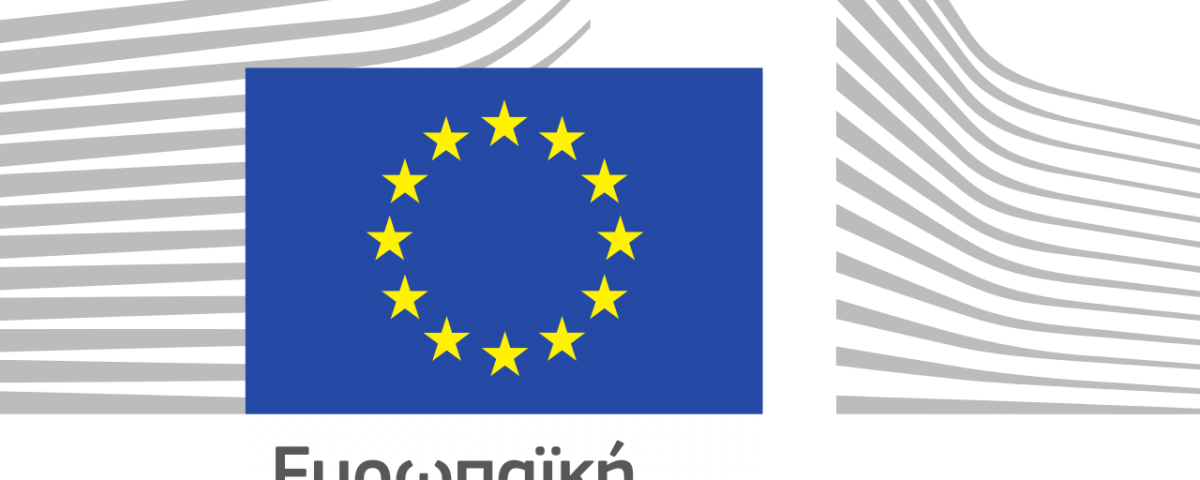
ΑΝΑΚΟΙΝΩΣΗ ΤΥΠΟΥ – ΜΕΤΑΝΑΣΤΕΥΣΗ ΚΑΙ ΑΣΥΛΟ: ΩΡΑ ΝΑ ΒΡΕΘΕΙ ΙΣΟΡΡΟΠΙΑ ΜΕΤΑΞΥ ΑΛΛΗΛΕΓΓΥΗΣ ΚΑΙ ΕΥΘΥΝΗΣ
19 Νοεμβρίου, 2020
Ενημερωτικό Σημείωμα – Η αυτόματη μετάφραση στον τουρισμό: διαδικτυακό σεμινάριο για το eTranslation
19 Νοεμβρίου, 2020Με την ευκαιρία της Παγκόσμιας Ημέρας του Παιδιού στις 20 Νοεμβρίου, η Ευρωπαϊκή Επιτροπή και ο Ύπατος Εκπρόσωπος της Ένωσης για θέματα εξωτερικής πολιτικής και πολιτικής ασφαλείας, δήλωσαν τα εξής:
«Η φετινή χρονιά έδειξε, περισσότερο από κάθε άλλη φορά, πόσο η κρίση διαταράσσει τη ζωή των παιδιών, ανεξάρτητα από τη χώρα στην οποία ζούνε. Η πανδημία του κορονοϊού και οι κοινωνικοοικονομικές της επιπτώσεις έχουν σοβαρό και, ενδεχομένως, μακροπρόθεσμο αντίκτυπο στη μάθηση, την ευημερία, την ανάπτυξη και την προστασία των παιδιών. Τα παιδιά κινδυνεύουν να μείνουν πίσω στην εκπαίδευση, να περιπέσουν σε συνθήκες φτώχειας και να γίνουν θύματα βίας, κακοποίησης και παραμέλησης. Πολλά παιδιά υποφέρουν λόγω περιορισμένης ή άνισης πρόσβασης σε υπηρεσίες και σε φροντίδα. Η πανδημία έφερε στην επιφάνεια τις βαθειές ανισότητες που εξακολουθούν να υπάρχουν και ανέδειξε τα σοβαρά κενά στα συστήματα προστασίας των παιδιώνσε όλο τον κόσμο.
Πάνω από 1,5 δισεκατομμύριο μαθητές στον κόσμο έχουν επηρεαστεί από το κλείσιμο των σχολείων, ενώ τουλάχιστον 1 στους 3 — δηλαδή πάνω από 460 εκατομμύρια μαθητές — δεν έχει πρόσβαση σε εξ αποστάσεως μάθηση. Για πολλά παιδιά, ιδίως για εκείνα που ζούν ήδη σε ζώνες συγκρούσεων ή υπό ιδιαίτερα δυσμενείς συνθήκες, το να πηγαίνουν στο σχολείο σημαίνει πολύ περισσότερα από πρόσβαση στην εκπαίδευση· σημαίνει, επίσης, πρόσβαση σε νερό και αποχέτευση, σε διατροφή, σε φροντίδα και ασφάλεια, που διαφορετικά δεν θα τους παρέχονταν. Η έλλειψη πρόσβασης σε αυτά τα αγαθά συνεπάγεται, για πολλά από αυτά τα παιδιά, διαβίωση υπό συνθήκες ακραίας φτώχειας ή την υποχρέωση να εγκαταλείψουν την εκπαίδευση και να αναζητήσουν εργασία. Για την αντιμετώπιση αυτών των προβλημάτων, τον Σεπτέμβριο η ΕΕ και η UNICEF εξέπεμψαν από κοινού μήνυμα S.O.S στον κόσμο για την προώθηση μέτρων που θα επιτρέψουν να διατηρηθεί η πρόσβαση στην εκπαίδευση για όλα τα παιδιά.
Η πανδημία είχε επίσης ως αποτέλεσμα να αυξηθούν οι καταγγελίες για σεξουαλική κακοποίηση παιδιών στο διαδίκτυο. Τον Ιούλιο η ΕΕ ενέκρινε τη Στρατηγική της ΕΕ για αποτελεσματικότερη καταπολέμηση της σεξουαλικής κακοποίησης παιδιών, και τον Σεπτέμβριο ενέκρινε νομοθετική πρόταση για να εξασφαλιστεί ότι οι εταιρείες – πάροχοι θα μπορούν να συνεχίσουν τον εντοπισμό, την καταγγελία και την αφαίρεση υλικού που αφορά περιστατικά σεξουαλικής κακοποίησης παιδιών στο διαδίκτυο. Η ΕΕ εξακολουθεί επίσης να εφαρμόζει το έργο CLEAR Cotton, για την παρακολούθηση της κατάστασης των παιδιών, ώστε να διασφαλίζεται ότι δεν επιστρέφουν στην παιδική εργασία και δεν εγκαταλείπουν ολοκληρωτικά το σχολείο.
Το προσφάτως εγκριθέν σχέδιο δράσης της ΕΕ για τα ανθρώπινα δικαιώματα και τη δημοκρατία 2020-2024 καθορίζει δράσεις για την προώθηση, την προστασία και τον σεβασμό όλων των δικαιωμάτων όλων των παιδιών. Η εφαρμογή του θα υποστηριχθεί από το πολυετές δημοσιονομικό πλαίσιο 2021-2027, το οποίο επιβεβαιώνει τη σημασία των δικαιωμάτων του παιδιού μέσω γεωγραφικών προγραμμάτων και θεματικών πρωτοβουλιών.
Το επόμενο βήμα μας θα είναι να εγκρίνουμε τη στρατηγική της ΕΕ για τα δικαιώματα του παιδιού το 2021, να αντιμετωπίσουμε τις προκλήσεις που έχουν ανακύψει λόγω της πανδημίας και να προτείνουμε δράσεις για την ενίσχυση της συμμετοχής των παιδιών, την προστασία και την προαγωγή των δικαιωμάτων των παιδιών σε όλα τα επίπεδα, στην ΕΕ και παγκοσμίως. Η στρατηγική αυτή συνδέεται στενά με τη Σύσταση για ευρωπαϊκή εγγύηση για τα παιδιά, την οποία θα προτείνουμε το επόμενο έτος. Η Ευρωπαϊκή Εγγύηση για τα παιδιά θα βοηθήσει τα κράτη μέλη να καταβάλουν προσπάθειες για την επίτευξη του στόχου να διασφαλιστεί η πρόσβαση των παιδιών που διατρέχουν κίνδυνο φτώχειας ή κοινωνικού αποκλεισμού σε βασικές υπηρεσίες, όπως η εκπαίδευση, η υγειονομική περίθαλψη, η τροφή και η ποιοτική στέγαση.
Τα παιδιά έχουν την εξαιρετική ευκαιρία να γίνουν οι σημαντικότεροι φορείς αλλαγής. Είναι συλλογική μας ευθύνη να τους δώσουμε τα μέσα για να αξιοποιήσουν πλήρως τις δυνατότητές τους· έτσι θα οικοδομήσουμε κοινωνίες ελεύθερες, χωρίς αποκλεισμούς, με ευημερία, ειρήνη και δημοκρατία.»
Ιστορικό (σύντομα διαθέσιμη η μετάφραση στην ελληνική γλώσσα)
The EU strives to mitigate the harmful impact of the coronavirus pandemic, adapting its projects all over the world to focus on the impact of the pandemic and taking the best interests of the child into account. In Africa, the EU invested €10 million to address child protection issues arising from and exacerbated by the coronavirus pandemic through a programme of the Joining Forces Initiative. The EU also swiftly refocussed the EU-UN Spotlight Initiative to counter the increase of violence against women and girls. More than €21 million have been frontloaded to prioritise helplines and shelters for survivors in South East Asia, Africa and Latin America Pacific and Caribbean.
Since the 2018 Communication on education in emergencies and protracted crises, the EU continued to focus its actions to bring out-of-school children back into safe and quality education. The EU’s commitment to education in emergencies is maintained at the level of 10% of its humanitarian aid budget. The EU leads by example to overcome inequalities and turn the coronavirus education crisis into an opportunity to build better, more inclusive and more equitable education, going hand-in-hand with protection of the most vulnerable. The EU also supports humanitarian child protection projects, including on prevention and response to violence, prevention of the recruitment and use of children, family tracing and reunification, psychosocial support and support to unaccompanied and separated children.
Through its continuous efforts toward the elimination of child labour and its cooperation with the ILO, the EU contributed to the universal ratification in 2020 of the ILO worst Forms of Child Labour Convention, 1999, n°182. The EU Sustainable Cocoa Initiative launched in September will help to reduce child labour highly prevalent in the main cocoa producer countries.
When it comes to children in migration, the New Pact on Migration and Asylum presented on 23 September 2020 puts the best interest of the child at the forefront and includes strengthened safeguards for migrant children. In October 2020, the EU, in partnership with UNICEF and UNHCR, launched the programme EU Global promotion of best practices for children in migration to increase the use of alternative care options to replace immigration detention. The programme Protecting Children affected by migration in Southeast, South, and Central Asia, launched in January 2018, continues to support access to national protection systems for all children. Since 2011, the EU provides support to strengthen regional and cross-border cooperation on child protection through the West Africa Network for the protection of children on the move.
The EU continues to support two UNICEF-UNFPA global programmes addressing child, early and forced child marriage and eliminating female genital mutilation through its Spotlight Africa Regional Programme (Stream II).
The EU commitment to children’s wellbeing offline and online remains a key priority. In 2020, the Safer Internet Centres funded by the EU run a specific awareness raising campaign and continued to provide helplines for supporting young users increasingly facing online risks, and hotline services for reporting child sexual abuse material.
The EU Strategy for a more effective fight against child sexual abuse presented in July aims to tackle child sexual abuse by putting in place a strong legal framework, improving coordination, and addressing child sexual abuse from all angles, including prevention, investigation and assistance to victims. In September, the Commission proposed an interim Regulation to ensure that providers of online communications services can continue detecting, reporting and removing child sexual abuse online beyond 21 December 2020. In 2021, the Commission will propose long-term legislation to tackle child sexual abuse and to replace the interim Regulation. The EU continues to support the WeProtect Global Alliance to end child sexual abuse online (WPGA), including by participating in its policy board.
The EU has developed a €13 million programme for quality alternative care for children and deinstitutionalisation in which five projects are being implemented in Armenia, Burundi, Cambodia, Georgia and Myanmar. EU initiatives in as many as 17 enlargement and neighbourhood partners contribute to preventing the separation of families and strengthening quality alternative care for children without sufficient parental care. The EU has approved a Decision to facilitate the access to justice for children on the move in West Africa (€7.9 million), that will be implemented by UNICEF in Burkina Faso, Guinea Conakry, Mali, Mauritania, Niger and Nigeria.
Related to the EU’s work on the Syria crisis, the EU and UNICEF have together published ‘The Book of Dreams’, telling the stories, hopes and dreams of children affected by the Syrian war. This book is a tribute to the children of Syria and the region, highlighting the EU-UNICEF partnership supporting them.


